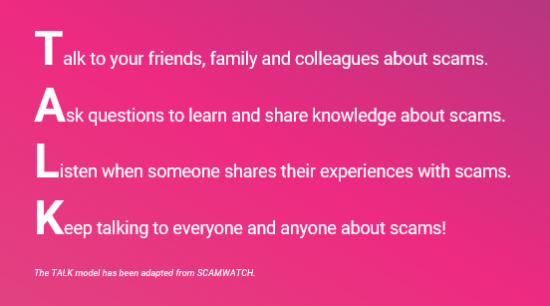Conversations that encourage talking about scams
Talking about scams isn’t always an easy thing to do. It can be embarrassing admitting we have fallen for a scam, and it may be uncomfortable asking about, and listening to, someone’s experiences of being scammed.
Falling for scams can happen to the best of us and we don’t need to be experts to talk about scams and fraud, we just need to share our experiences and heighten our awareness.
Often victims worry that their family, friends and even the police will judge them for falling for a scam. They don’t report scams because they think that nothing can be done by reporting the crime.
Staying silent benefits scammers so we must spread awareness through talking. Sharing stories and experiences can help others to recognise the warning signs and avoid a scam themselves. It is not always older people who are being targeted and an older person can help a younger person avoid a scam by sharing their experiences.
Awareness empowers us to trust our judgements and to avoid scams. Once the conversations start and older people feel that there’s nothing to be ashamed of even if they have experienced scams, you can encourage older people to become Friends Against Scams (FAS) Scam Marshals.
A Scam Marshal is any resident in the UK who has been targeted by a scam and now wants to fight back and take a stand against scams. Scam Marshals do this by sharing their own experiences, helping others to report and recognise scams and sending any scam mail that they receive to the National Trading Standards (NTS) scams team so that it can be utilised as evidence in future investigative and enforcement work. This work by Scam Marshals plays a huge role in helping to stop scam mail altogether.
